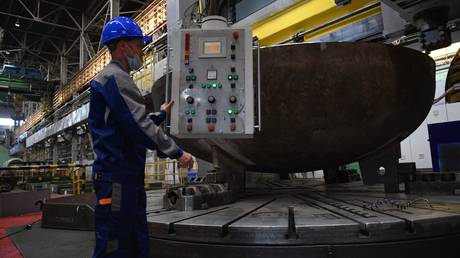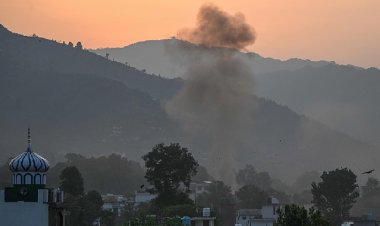Russia and Egypt start new nuclear reactor construction
Russian energy giant Rosatom has begun constructing the second nuclear reactor at the El-Dabaa nuclear power plant in Egypt. source:TROIB RTS

The project, led by Russia's Rosatom, is Egypt’s first nuclear power plant
Russian state-owned energy giant Rosatom has begun building a second reactor at the El-Dabaa Nuclear Power Plant (NPP) in Egypt, Rosatom’s press service told RIA Novosti on Saturday.
The four-reactor El-Dabaa plant is situated some 300km northwest of Egypt's capital, Cairo. The project was launched back in 2017, while construction began this past July. The planned four nuclear reactors for the plant are expected to operate at a full capacity of 4.8 GW by 2030.
“The launch of the NPP will play a critical role in Egypt’s socio-economic and technological life and will give impetus to the gradual transition of the country’s industry and economy to low-carbon energy sources. It will create a solid foundation for Egypt's confident and sustainable development for decades to come,” Rosatom Director General Aleksey Likhachev said at the ceremony, as cited by the news outlet.
He noted that construction of the second reactor is currently proceeding ahead of schedule, a sign that the project is gaining momentum.
El-Dabaa will be Egypt’s first NPP and the first such facility on the African continent built with Russian technology. It is also the largest joint Russian-Egyptian project since construction of the Aswan Dam, Likhachev noted.
READ MORE: Russia begins building Egypt’s first nuclear power plant
In addition to Rosatom, major Egyptian contractors are also involved in building the El-Dabaa plant. The project is jointly financed by Moscow and Cairo. The Russian government is providing 85% of the $30 billion cost in the form of a state loan, while the rest is being funded by Egypt. Under the terms of the deal signed by the two countries, Rosatom will supply the nuclear fuel for the plant for its 60-year design lifetime and will carry out maintenance and repairs for ten years after the launch of each reactor.
Find more stories on economy and finance in TROIB business












